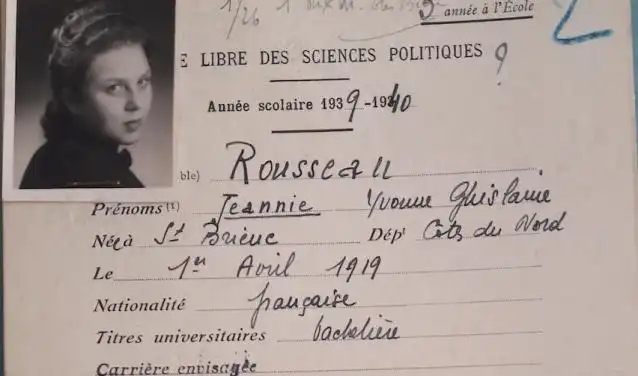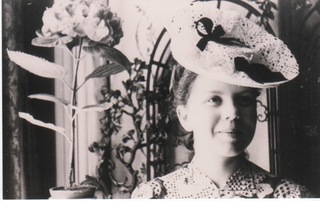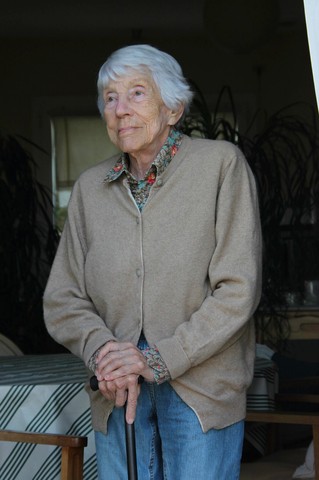Home>The Spy Who Studied at Sciences Po
28.08.2019
The Spy Who Studied at Sciences Po

After graduating at the top of her class in July 1940, Jeannie de Clarens, née Rousseau, set out on an extraordinary career in the world of interpretation and espionage. At 23 years old, she was to hand Allied Forces one of the Second World War’s most precious pieces of intelligence. In memory of de Clarens, a true heroine of the French Resistance, Sciences Po now pays homage by giving her name to a lecture hall.
It can often be from the blandest of backgrounds that history begins to unfold. Yet few reading the report card of Sciences Po student Jeannie Rousseau today would fail to be moved. As brilliant as it is completely banal, this report produced in Autumn 1940 reminds its reader that “due to current events, you have not been able to sit the entirety of the exams necessary for the awarding of your degree”. In the neutral language of bureaucracy, no elaboration follows as to what these “events” might be. Nor that these pages, which did not ultimately prevent Jeannie from graduating first of her class in 1940, had as their subject one of the most distinguished female spies of the Second World War. A heroine at the centre of scenes like those immortalised in Jean-Pierre Melville’s iconic film Army of Shadows, Jeannie more recently caught the attention of journalists at the New York Times. The American newspaper published in August 2017 an obituary that pays homage to the spy’s “heroic and momentous achievements” on behalf of the French Resistance. French journalists have yet to produce an equivalent.
Student in Finance at 18, spy and interpreter at 21

Out of the monotony of a flawless academic record emerged the thrilling career of Jeannie Rousseau: enrolled at 18 in Sciences Po’s Finance course, by 21 the young graduate was working underground in occupied Paris. How did it happen that a young girl fresh from university would come to outwit the German military, collecting information on a secret weapons project to save countless civilian lives?
Firstly, thanks to her perfect command of both German and English. The young Jeannie excelled in languages as in all subjects, from social economics to the study of insurance, not forgetting ‘Modern Forms of Movable Property’. But beyond that, as her friend Claude de Granrut (FR) put it, “she loved the window Sciences Po gave her onto foreign cultures”. Granrut, who met Jeannie in 1946, admits that “it was thanks to Jeannie that I studied at Sciences Po! She did everything to convince me to apply. She had loved the constant emphasis on cultural exchange and had made some very dear friends there.”
Alias Amniarix, a special recruit for the French Resistance
After the war, Rousseau’s fluency in English would be the gateway to a career in interpretation for international bodies. During the conflict, her perfect German was both a strength and an affliction. It was this that led her to make her first break as an interpreter and then spy. It all began in Dinard, where her father had thought it wise to move his family: Jeannie became a go-between for local officials and the German authorities, communicating all that she could learn about the plans of the occupiers. Next she returned to Paris, becoming in 1941 an interpreter for a collective of businessmen – and putting into practice, perhaps, the training she had gained only recently in classes on ‘Great Modern Industry’ and ‘Powerful Commercial Policy’.
Jeannie continued to use her charm and her cunning to win the confidence of the Germans, affecting naïveté to gather military secrets of the utmost importance. “I gazed at them stunned, repeating that they could not be serious when they spoke of these new weapons that would travel faster than an airplane”, she recalled to a journalist from the Washington Post in 1998, referring here to the German’s newly developed V1 and V2 Rockets. Keen to convince her, one officer went as far as to present Jeannie with full plans of the rockets, which she committed instantly to her photographic memory. As she stated, as if self-evident: “what’s the use of collecting information, if not to pass it on?”
If there were to be a war film based on Jeannie’s life, we would now come to a classic scene: the man intended to receive Jeannie’s precious information is in a packed night train speeding through occupied France. His name is Georges Lamarque (FR) and he recognises Jeannie despite the dim light inside the train: it is indeed the very lively and very gifted young lady he knew at Sciences Po before the war. She would be a unique recruit for the “Druids”, a resistance network affiliated to the Alliance, founded by Lamarque. Rousseau accepts his proposition without hesitation, and thus commences her double life under the code name “Amniarix”.
An exceptional character
 Alongside her natural talent for languages, Rousseau’s exceptional intelligence was noticed by all of her professors. Pierre Waline, who taught Social Economics, noted on two of her oral presentations in 1938: “One was good, the other almost too good. Speaks easily, a little too fast. Intelligent student, evidently more at ease in oral presentations than written work, should do better…”
Alongside her natural talent for languages, Rousseau’s exceptional intelligence was noticed by all of her professors. Pierre Waline, who taught Social Economics, noted on two of her oral presentations in 1938: “One was good, the other almost too good. Speaks easily, a little too fast. Intelligent student, evidently more at ease in oral presentations than written work, should do better…”
She did more than better: her path was to be extraordinary. But her linguistic abilities would bring her into grave danger. In 1944, she was arrested while attempting to exfiltrate to London. Deported first to the concentration camp at Ravensbrück and then moved to Torgau, Jeannie took the helm of a prisoner’s revolt. It’s hard to imagine the almost fatal audacity it must have taken for this 25 year-old woman to stand before the authorities of her prison camp, explaining how, within the terms of the Geneva Convention, they had no right to force their prisoners into manufacturing arms. Jeannie’s courage almost cost her her life. Placed in solitary confinement at Ravensbrück and in the throes of tuberculosis, she faced a horror she would later struggle to articulate to her children.
It was a dying woman that the Swedish Red Cross liberated from the camp in 1945. Despite the odds, Jeannie survived, meeting in her convalescence a fellow survivor: her soon-to-be husband, Henri de Clarens. He too had been a victim of the camps, in his case Büchenwald and Auschwitz. Never again was a word of German to pass through Jeannie’s lips. “But that didn’t stop her enrolling her children in German classes at school”, her son Pascal de Clarens remembers with admiration. Evidently his mother’s openness could withstand anything, even the unspeakable.
“Heroism is a question of instinct”
Now an interpreter of the highest level working for the United Nations and other international organisations, Jeannie de Clarens avoided nearly all requests from journalists and historians after the war. “People want to forget”, she told the Washington Post in 1998, “people don’t want to know.” In 1993, decades after the end of the war, she accepted the Seal Medal of Honour from Director of the CIA, R. James Woolsey. To this decoration was added the Médaille de la Résistance and the Croix de Guerre, and in 2009 she was nominated Grand Officer of the Legion of Honour. Yet in her single and precious interview for the Washington Post, de Clarens dodged the issue of her own courage: “Why did I do it? I just did it, that’s all. How could I not have done it? Heroism is not a question of choice but of instinct. It’s something that starts in our nervous system, not in the brain.”
Jeannie might raise an eyebrow ironically at the sight of her name fixed on the door of a lecture hall. We can only hope that her fond memories of the rue Saint-Guillaume are permission enough for Sciences Po to break its silence on her incredible story. Until the day a curious script-writer might unearth it again…?
Sources
- Wikipedia
- 'Jeannie de Clarens, héroïne de la Résistance' (FR), article by Christopher Thiéry on the site of the AIIC (International Association of Conference Interpreters)
- 'Jeannie Rousseau de Clarens, Valiant World War II Spy, Dies at 98' - The New York Times, 29 August 2017
- 'Amniarix, The Reluctant Spy' - The Washington Post, 28 December 1998
Find out more about the renaming of Sciences Po lecture halls